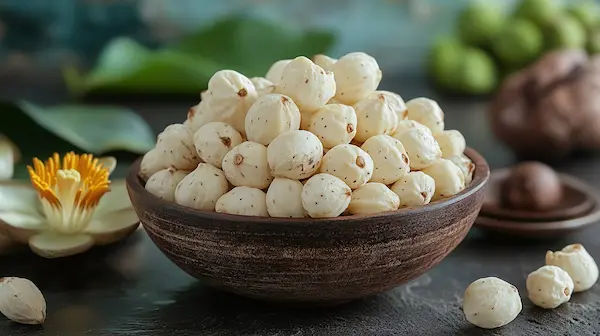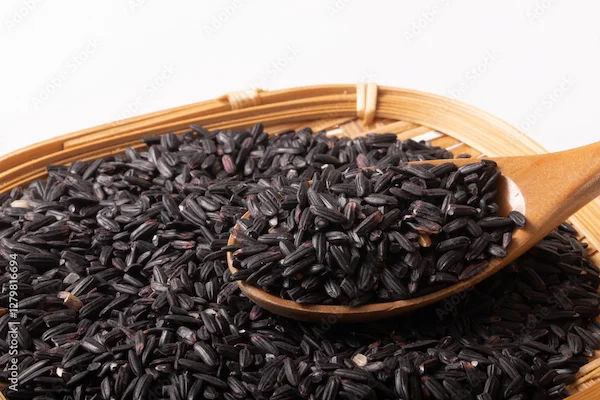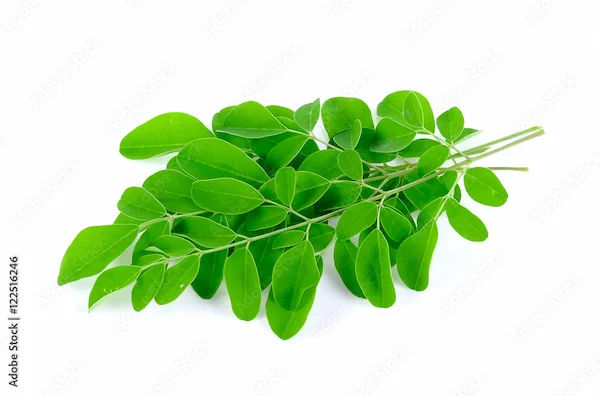10 Proven Health Benefits of Garlic You Should Know
Discover 10 science-backed garlic benefits for heart health and as a natural immunity booster, plus safety tips, FAQs, and smart ways to use it.

Written by Dr. Siri Nallapu
Reviewed by Dr. Dhankecha Mayank Dineshbhai MBBS
Last updated on 13th Jan, 2026

Introduction
Garlic has been used for centuries for both flavor and wellness. Today, researchers continue to explore garlic benefits for heart health, immunity, and more. While it’s not a cure-all, adding garlic to everyday meals (and, for some people, using standardized supplements) can support healthy living in small but meaningful ways. Below, you’ll find 10 science-backed reasons to enjoy garlic, how to use it safely, and answers to common questions about this popular “immunity booster.”
Top 10 garlic benefits backed by research
1) Supports heart health by helping lower blood pressure
• What we know: Multiple clinical studies suggest certain garlic preparations—especially standardized aged garlic extract—can modestly lower blood pressure in adults with hypertension.
• How much of a change? Average reductions in the range of about 5–8 mmHg systolic and 2–5 mmHg diastolic have been reported in some trials of people with high blood pressure, typically after 8–12 weeks of use.
• Why it matters: Even small blood pressure reductions can lower cardiovascular risk over time when combined with healthy lifestyle habits and prescribed treatment.
2) Helps maintain healthy cholesterol levels
• Evidence snapshot: Garlic may slightly reduce total cholesterol and LDL (“bad”) cholesterol in some people, though results across studies are mixed and the effect is generally modest.
• Practical take: If your clinician says your cholesterol is borderline, cooking with garlic can be part of a heart-smart eating plan. Do not stop or change prescribed statins or other medicines without medical advice.
3) May act as an immunity booster (with realistic expectations)
• What the science shows: Lab studies demonstrate antibacterial and antiviral activity of garlic compounds, but human evidence is limited. A small number of clinical trials suggest garlic supplements might reduce the number of colds or slightly shorten their duration. More and larger studies are needed.
• Bottom line: Garlic can be part of a balanced approach to supporting your immune system—along with sleep, vaccines, hand hygiene, and a nutrient-rich diet.
4) Provides antioxidant and anti-inflammatory compounds
• The basics: When garlic is chopped or crushed, it forms allicin and other organosulfur compounds. These act as antioxidants in the body and may help reduce oxidative stress and low-grade inflammation—processes linked with chronic disease.
• What that could mean for you: Antioxidant support is one way garlic may contribute to overall wellness, though it’s best thought of as one helpful food among many.
5) May improve blood vessel function and circulation
• Early findings: Studies of aged garlic extract report improvements in measures like arterial stiffness and endothelial function (how well blood vessels relax and constrict), especially in people with cardiovascular risk factors.
• Why that’s useful: Better vessel function supports healthy circulation and is another reason garlic aligns with heart health goals.
6) May help maintain healthy blood sugar
• Research insight: Meta-analyses suggest garlic supplementation can lead to small reductions in fasting blood glucose and, in some studies, A1C—especially in adults with type 2 diabetes—when used alongside standard care.
• Important: Garlic is not a substitute for diabetes medications or medical nutrition therapy. Always work with your clinician on a personalized plan.
7) Feeds “good” gut bacteria with prebiotic compounds
• Food-as-fiber: Garlic naturally contains fructans (inulin-type prebiotic fibers). These fibers are fermented by beneficial gut bacteria, which can support a healthy microbiome.
• Tip: If you have IBS or are sensitive to FODMAPs, garlic may trigger symptoms; consider infused oils or talk with a dietitian.
8) Possible links to lower risk of certain cancers (still under study)
• What we can say: Observational studies have associated higher intakes of allium vegetables (like garlic and onions) with a lower risk of some gastrointestinal cancers. However, this does not prove cause and effect.
• Current guidance: No health authority recommends garlic alone to prevent cancer. Focus on an overall plant-forward eating pattern, regular screening, and healthy lifestyle habits.
9) Natural antiplatelet activity (with safety cautions)
• What it does: Garlic can mildly reduce platelet aggregation (how blood cells clump), which is one potential way it supports cardiovascular health.
• Safety note: Because of this effect, garlic—especially in supplement form—may increase bleeding risk if you take blood thinners (e.g., warfarin), antiplatelet drugs (e.g., aspirin, clopidogrel), or before surgery. Always check with your healthcare provider.
10) Big flavor that helps you cut sodium and saturated fat
• Everyday win: Using garlic, herbs, and spices lets you season food deliciously with less salt and fewer heavy sauces. That shift alone can benefit blood pressure, weight management, and overall heart health.
Consult a Top Ayurveda Specialist for Personalised Advice
How to use garlic for the most benefit?
• Crush, chop, and wait: Let chopped or crushed garlic sit for about 10 minutes before cooking. This allows the enzyme alliinase to form allicin, preserving more active compounds when you heat it.
• Add late in cooking: To keep more aroma and potential bioactives, add garlic toward the end of cooking or use some raw in sauces like chimichurri, pesto, or yogurt dips.
• Consider aged garlic extract (AGE): Many studies use standardized AGE at daily doses around 600–1,200 mg. If you’re thinking about supplements, talk with your clinician first—especially if you take medications or have a bleeding risk.
• Try garlic-infused oils for sensitive stomachs: These can provide garlic flavor with fewer FODMAPs for people who are sensitive, but follow safe storage tips (see below).
Safety tips and who should be cautious?
Certain safety and preventive tips include:
• Blood thinners/antiplatelets: Garlic supplements may increase bleeding risk.
• Certain HIV medications (e.g., saquinavir): Garlic supplements can reduce drug levels.
• Scheduled surgery or dental procedures: Tell your clinician about supplements; you may be advised to stop garlic supplements 1–2 weeks beforehand.
• Side effects: Bad breath, body odor, heartburn, gas, or stomach upset are common, especially with raw garlic or high doses.
• Skin caution: Do not apply raw garlic to the skin; it can cause burns.
• Pregnancy and breastfeeding: Culinary amounts are generally considered safe; safety of high-dose supplements is not well established—consult your clinician.
• Food safety: Garlic-in-oil mixtures can cause botulism if stored at room temperature. Keep refrigerated and use promptly; follow product instructions for commercial preparations.
Simple ways to add more garlic to meals
• Stir into sautés near the end of cooking to keep the flavor fresh.
• Blend into hummus, bean dips, or Greek yogurt sauce with lemon and herbs.
• Rub a cut clove on warm toast, then top with tomatoes and olive oil.
• Roast whole heads until soft and spreadable; mash into soups and whole grains.
• Make a quick vinaigrette with olive oil, lemon, minced garlic, Dijon, and pepper.
Consult a Top Ayurveda Specialist for Personalised Advice
Consult a Top Ayurveda Specialist for Personalised Advice

Dr. Pepsy Jose
Panchakarma Practitioner
14 Years • BAMS, MD Ayurveda (Panchakarma)
Bengaluru
AYURRHYTHM HOLISTIC CLINIC AND PANCHAKARMA THERAPY, Bengaluru

Dr. Anjan Das
Ayurveda Practitioner
8 Years • Ayurvedacharya ( B.A.M.S )
Dumdum
Vedhive Ayurveda Clinic, Dumdum

Dr. Rik Sadhukhan
Ayurveda Practitioner
8 Years • BAMS
Kolkata
Vedhive Ayurveda, Ballygunge, Kolkata

Dr. Shiv Prakash Singh
Ayurveda Practitioner
19 Years • BAMS
Kolkata
Vedhive Ayurveda College Street, Kolkata
Consult a Top Ayurveda Specialist for Personalised Advice

Dr. Pepsy Jose
Panchakarma Practitioner
14 Years • BAMS, MD Ayurveda (Panchakarma)
Bengaluru
AYURRHYTHM HOLISTIC CLINIC AND PANCHAKARMA THERAPY, Bengaluru

Dr. Anjan Das
Ayurveda Practitioner
8 Years • Ayurvedacharya ( B.A.M.S )
Dumdum
Vedhive Ayurveda Clinic, Dumdum

Dr. Rik Sadhukhan
Ayurveda Practitioner
8 Years • BAMS
Kolkata
Vedhive Ayurveda, Ballygunge, Kolkata

Dr. Shiv Prakash Singh
Ayurveda Practitioner
19 Years • BAMS
Kolkata
Vedhive Ayurveda College Street, Kolkata
More articles from General Medical Consultation
Frequently Asked Questions
1) How much garlic should I eat daily?
For most healthy adults, using 1–2 cloves in cooking each day is a practical, food-based approach. Studies of supplements often use standardized aged garlic extract around 600–1,200 mg daily. Talk with your clinician before starting any supplement, especially if you take medications or have a bleeding risk.
2) Is raw garlic better than cooked?
Raw garlic retains more allicin, an active compound formed when garlic is crushed or chopped. Cooking can reduce allicin, but you still get helpful compounds and flavor. For a balanced approach, use a mix of raw (e.g., in dressings) and gently cooked garlic. Letting chopped garlic rest for 10 minutes before cooking helps preserve activity.
3) Can garlic replace my blood pressure or cholesterol medicine?
No. Garlic can offer small improvements, but it is not a replacement for prescribed medications or lifestyle changes recommended by your clinician. If you’re interested in garlic supplements, discuss them with your healthcare provider to avoid interactions and to set realistic expectations.
4) Are garlic supplements safe?
Many people tolerate standardized garlic supplements, but they can interact with medicines (especially blood thinners and certain HIV drugs) and increase bleeding risk. Side effects can include digestive upset and odor. Choose reputable brands, avoid megadoses, and check with your healthcare provider first.
5) How can I reduce garlic breath?
Try:
Parsley, mint, or green tea after meals
Raw apple or lettuce
Milk with your meal
Brushing and tongue scraping
These can help, but strong garlic breath may still linger for a while.




